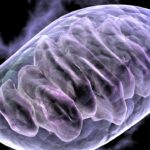In a new study, published in the American Journal of Perinatology, researchers determined that children who were born to mothers with hyperemesis gravidarum during pregnancy were at a higher risk of developing autism spectrum disorder.
Hyperemesis gravidarum is characterized by symptoms of severe nausea, often leading to dehydration and lack of nutrition during pregnancy.
In the study, researchers assessed the health data of 500,000 pregnant women and their children born between 1991 to 2014. The participants were compared to their counterparts with no diagnosis of hyperemesis gravidarum.
The findings indicate that the participants who exhibited hyperemesis gravidarum experienced a lack of nutrition, increasing the risk of neurodevelopmental impairment in their children by up to 53 percent. The increased risk of autism was indicated to be more likely during the first and second trimesters of pregnancy.
“This study is important because it suggests that children born to women with hyperemesis may be at an increased risk of autism,” according to the study’s lead author.
“Awareness of this association may create the opportunity for earlier diagnosis and intervention in children at risk of autism.”


